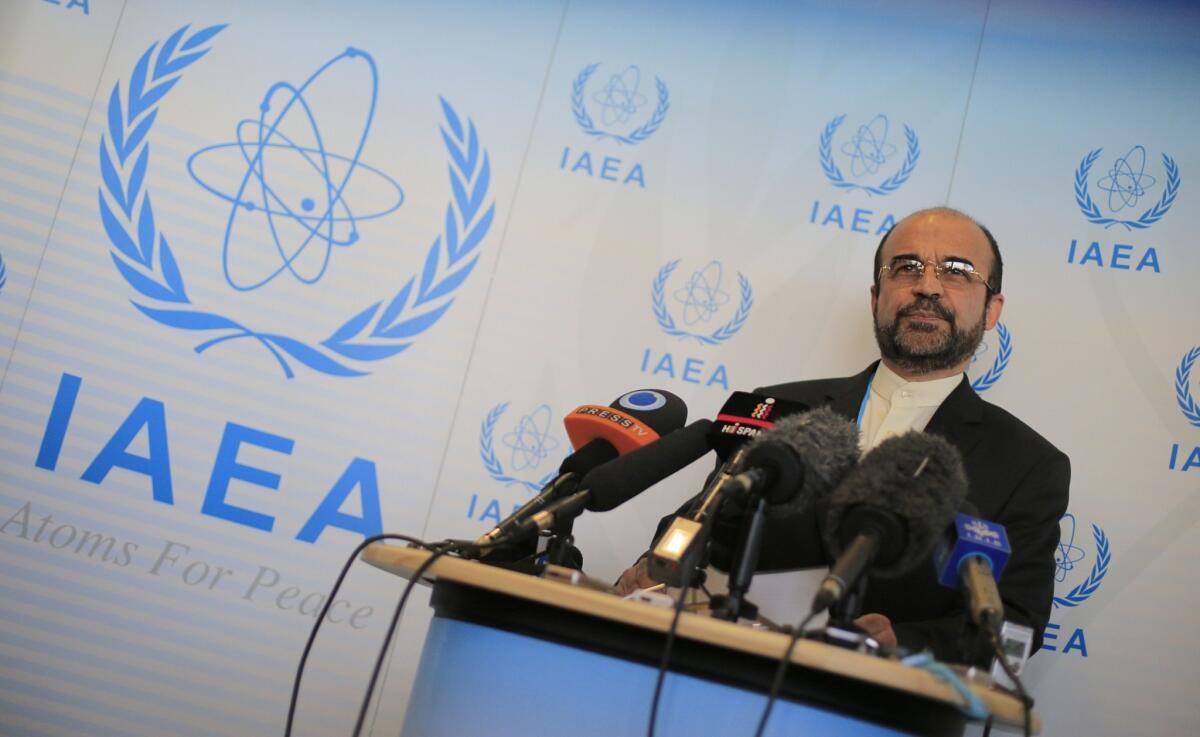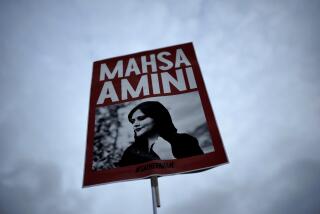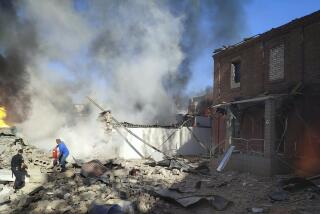Iran announces deep cut in enriched uranium stockpile

Iran has recently converted more than 40% of its stockpile of enriched uranium to fuel rods for use in a civilian reactor and is in the process of converting the rest, the country’s nuclear chief has announced on state television.
The claim aired by Ali Akbar Salehi, head of the Atomic Energy Organization of Iran, was the latest signal from newly inaugurated President Hassan Rouhani’s government that Tehran is working to allay Western fears about its nuclear programs.
Rouhani last week moved to transfer authority from Iran’s religious hierarchy to his elected government for nuclear programs and international negotiations on their scope and transparency. The move was hailed by both the International Atomic Energy Agency in Vienna and the six world powers that have been at work for the last two years trying to ensure that Iran isn’t preparing to build nuclear weapons.
“Although we know the nuclear case against us is fabricated, we are ready to relieve the other side’s concern,” Salehi said in the televised Thursday night interview, reported by the semiofficial Fars News Agency on Friday.
The United States and its Western allies have been demanding that Iran cease enriching uranium to 20% purity, a level above that needed for civilian nuclear energy production and one that can be easily converted to weapon-grade fuel.
Tehran has refused to scuttle its enrichment activities, citing the Nuclear Nonproliferation Treaty, which allows nations to process uranium for civilian uses like energy production and medical research.
Salehi said Iran had recently reduced its 240-kilogram stock of 20% uranium to 140 kilograms, a 42% drop, by converting it to fuel rods for a medical research reactor. He also said the rest of the stockpile was being converted as well. Experts say about 250 kilograms (550 pounds) of 20% uranium is sufficient to build one nuclear bomb once the fuel has been further enriched to 90% purity.
Iranian officials during the eight-year regime of combative former President Mahmoud Ahmadinejad took a more belligerent stand in negotiations with the IAEA and the six-power forum, denying that Tehran was pursuing military nuclear applications while installing new centrifuges and ramping up enrichment.
Iran’s longtime representative at the IAEA in Vienna, Ali Asghar Soltanieh, was replaced at the start of this month with a more soft-spoken diplomat, disarmament expert Reza Najafi. The new envoy reiterated at this week’s annual meeting of the 35-nation board of the United Nations nuclear watchdog agency that Iran will never give up its “inalienable right to develop a nuclear program.”
But Najafi also said Iran wants to put Western fears about its atomic activities to rest, saying, “Iran is ready to engage and remove any ambiguity.”
Talks between Tehran and the IAEA are to resume Sept. 27 in Vienna, after a four-month hiatus during the spring election campaign and Aug. 3 inauguration of Rouhani. A legal scholar and senior cleric, Rouhani was seen as moderate in comparison with the seven other hard-line presidential candidates and pulled off a surprising first-ballot win.
The six-power talks with Iran also have been dormant since spring, when a gathering in Kazakhstan, the fifth meeting in a year, failed to move the parties closer to an agreement on how to ensure Iran remains restricted to peaceful nuclear operations.
Rouhani has suggested, though, that representatives of the five permanent U.N. Security Council members — the United States, Russia, China, Britain and France — plus Germany meet with his delegation at the U.N. General Assembly in New York at the end of the month to get the talks back on track.
Middle East analysts have reacted to the recent Iranian overtures with a wait-and-see attitude, noting that the changes in Iran’s nuclear posture since Rouhani became president are more in tone than in substance.
Some point out that Rouhani, who was Iran’s chief nuclear negotiator before Ahmadinejad’s leadership, did little to convince international monitors then that Iran’s programs were purely peaceful.
“What Rouhani is looking for is to buy the time that he needs to move the program forward” toward nuclear weapon capability, said Alireza Jafarzadeh, an author and analyst from the National Council of Resistance of Iran, a dissident exile group.
ALSO:Four sentenced to death in India gang-rape case
Kerry, Russian counterpart look toward Syria peace conference
Americans escape harm in assault on U.S. Consulate in Afghanistan
Twitter: @cjwilliamslat
More to Read
Start your day right
Sign up for Essential California for news, features and recommendations from the L.A. Times and beyond in your inbox six days a week.
You may occasionally receive promotional content from the Los Angeles Times.







